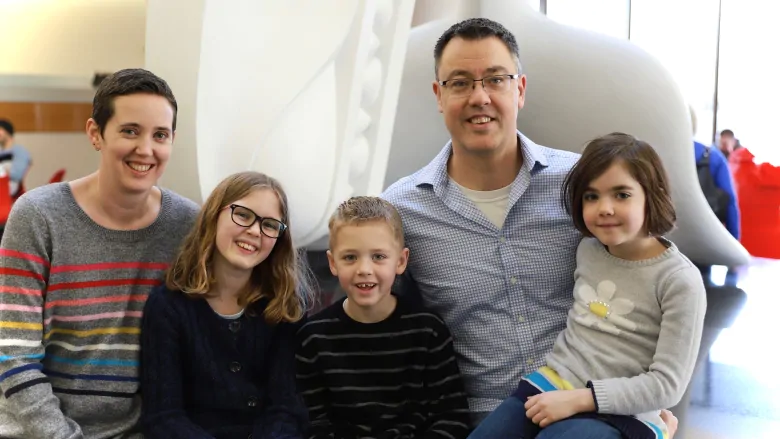In most instances, people with COVID-19 recover at home, outside the health-care system. What’s growing clear, both patients and clinicians agree, is that some of those people wind up facing a long, rocky road to recovery.

Chandra Pasma thought it was strange when she started feeling a burning sensation in her neck and ear canal.
It was March 16, just days after COVID-19 had been declared a pandemic, and the 40-year-old Ottawa resident knew people were being infected across the country. But since her symptoms weren’t among those listed for the virus, she didn’t think much of it.
Then every single member of Pasma’s household started falling ill.
First it was her husband, 44-year-old Matt Helleman, who suddenly felt exhausted. Just days later, the couple’s three children — seven-year-old twins and a nine-year-old daughter — started experiencing fevers, sore throats, and fatigue. And around the same time, Pasma’s own symptoms ramped up into chest pain and a cough.
“I thought, oh crap,” she recalls. “This is COVID.”
Like many people with milder forms of the illness, the whole family hunkered down, hoping to get better over a couple weeks at home — not knowing it would mark the start of a months-long recovery, with none of the family members feeling back to normal even now, more than 10 weeks later.
So far, at least 90,000 Canadians have been infected with COVID-19. In some cases, the illness leads to a stay in intensive care or even causes death, with roughly 7,000 people dying to date.
But in most other instances, those suffering from less-severe forms do recover outside the health-care system. What’s growing clear, both patients and clinicians agree, is that some of those people wind up facing a long, rocky road to recovery.
‘Constant cycle’ of new symptoms
A few months back, as the little-understood virus was first spreading around the world, health officials initially described it as a respiratory illness, even weaving that piece into its official name: SARS-CoV-2, referring to “severe acute respiratory syndrome.”
Since then, evidence and patient stories have emerged suggesting it actually impacts various parts of the body.
One recent study published in the Canadian Medical Association Journal, for instance, determined that changes to someone’s ability to taste and smell are likely a common feature of infection — a symptom first noticed anecdotally by doctors around the world.
Similarly, early notions of a roughly two-week recovery period for mild cases — outlined in a February review of preliminary Chinese data from the World Health Organization — have been questioned by people who say their less-severe illnesses are still taking weeks, if not months, to fully clear up.
Pasma first realized her family wasn’t alone after joining a COVID-19 support group called Body Politic on Slack, an online communication platform. The group now includes more than 4,000 people.
There, she met other global COVID-19 sufferers who were also documenting weeks-long illnesse

